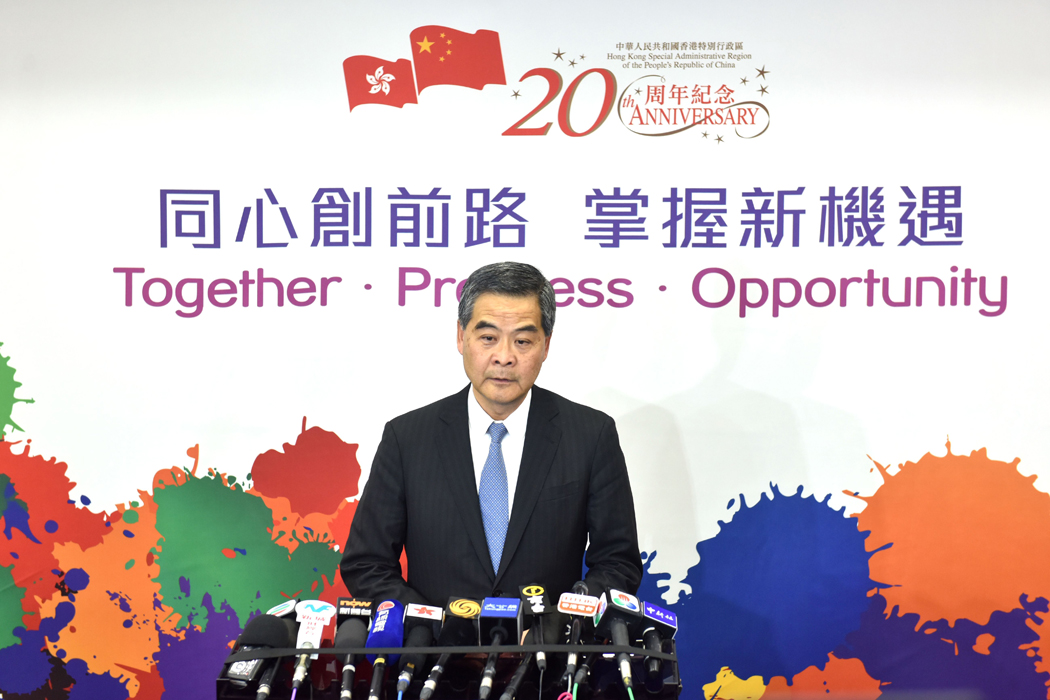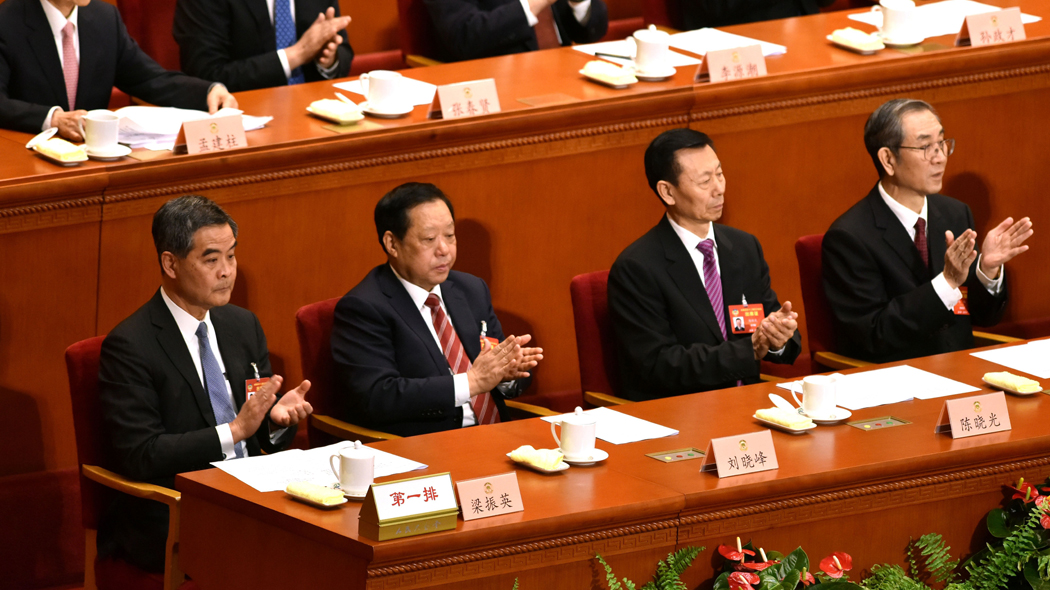Chief Executive Leung Chun-ying has said he can manage his new role as a vice-chairman of China’s top political advisory body, as well as his family, after he steps down from leading Hong Kong in July.
Leung was appointed as a vice-chairman of the Chinese People’s Political Consultative Conference (CPPCC) on Monday – effectively a state leader. He is the first chief executive to hold both positions during his tenure.
Last December, Leung decided not to seek re-election citing family reasons. After his appointment, reporters asked why he would be spending more time on the new role as opposed to being with his family.

Leung said the role of the chief executive was indeed heavy.
“I need to take care of my family, do my job as an incumbent chief executive, and run an election – to fully participate in this election over these few months. It would be impossible to do all three together,” he said in Beijing on Monday afternoon.
“After July 1, when I am no longer chief executive, I can take care of my family and be a vice-chairman of the CPPCC – there is no conflict, I can handle both.”
Leung stepped down as a member of the CPPCC before he took office as chief executive in 2012. However, this time, he said the two jobs have a shorter overlap. He did not rule out asking for leave of absence for some events as CPPCC vice-chairman.
‘Consolation prize?’
Critics have suggested the new appointment was a consolation prize for agreeing not to run for a second term as chief executive, since the hugely unpopular Leung may not even receive enough votes from the small-circle 1,194-member election committee, which is largely controlled by Beijing.

After his appointment, Chinese President Xi Jinping spoke to Leung for around 40 seconds and shook hands with him following the closing ceremony. After Xi, Premier Li Keqiang and several other Politburo members also shook hands with him.
Leung said Xi encouraged him to continue serving China and Hong Kong.
Leung’s appointment received 13 opposition votes and 16 abstentions out of 2,101 members.
Asked if the abstentions and opposition votes were related to his ongoing UGL controversy, Leung said: “I do not know. If you know, you should tell me.”
Border crossing
Leung also met with third-ranking state leader Zhang Dejiang to discuss joint checkpoint negotiations at the West Kowloon Express Rail Link terminus.
The partition layouts within two basement levels of the terminus were reportedly customised according to requests from the mainland authorities.
Leung said they did not go into detail, but they both agreed a joint checkpoint needs to be achieved to let the rail link create its “social and economic impact.”
“At the same time we need to work things out according to the law to implement a joint checkpoint,” Leung said.
